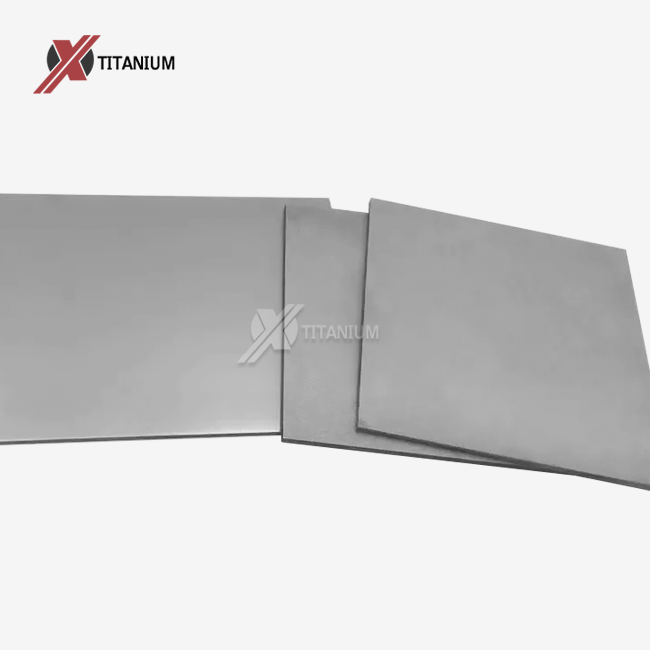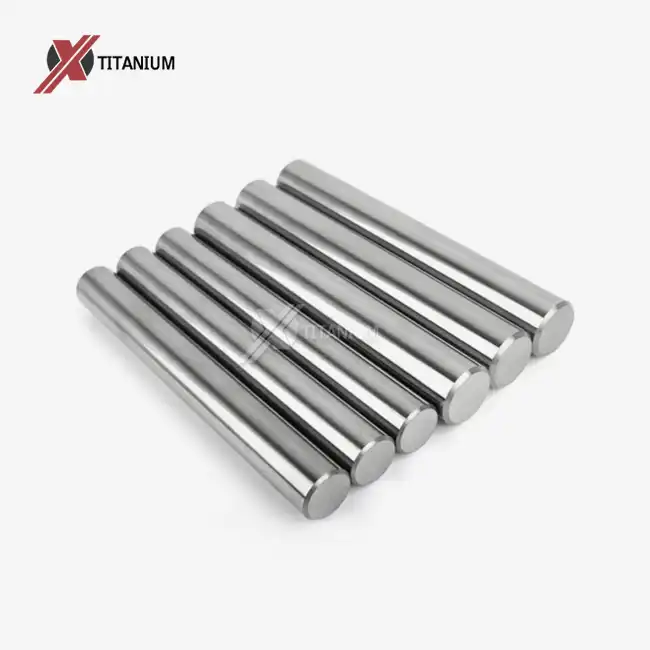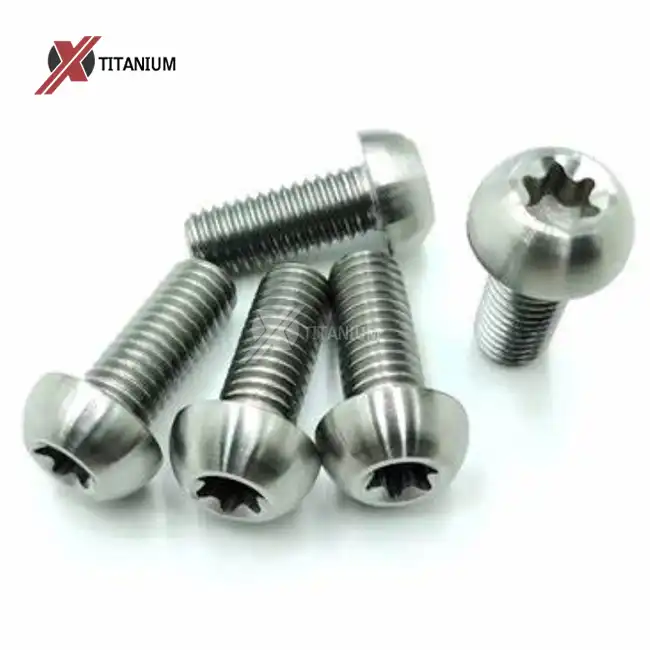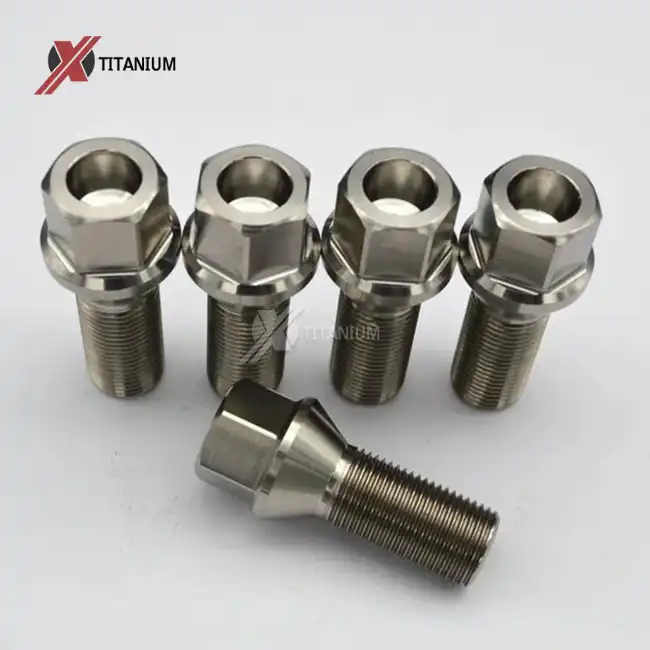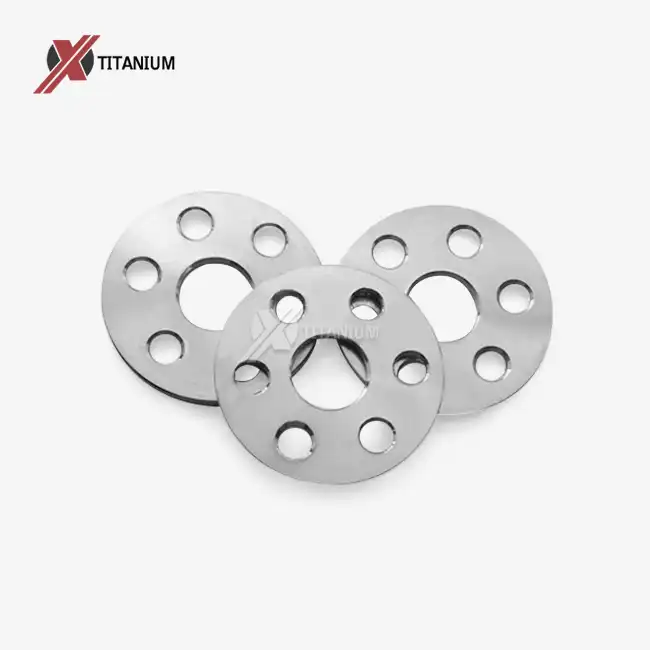The Science Behind Grade 2 Titanium's Corrosion Resistance
Chemical Composition and Passive Layer Formation
Grade 2 titanium plate, also known as commercially pure titanium, contains minimal alloying elements. This purity contributes significantly to its exceptional corrosion resistance. The material's chemical composition typically includes titanium (99.2% minimum), iron (max 0.30%), carbon (max 0.08%), nitrogen (max 0.03%), oxygen (max 0.25%), and hydrogen (max 0.015%).
When exposed to oxygen, grade 2 titanium plate rapidly forms a protective oxide layer on its surface. This passive film, predominantly composed of titanium dioxide (TiO2), is incredibly thin – typically just a few nanometers thick – yet remarkably effective in shielding the underlying metal from corrosive attacks.
Self-Healing Properties
One of the most impressive features of grade 2 titanium plate's corrosion resistance is its self-healing capability. If the protective oxide layer is scratched or damaged, it immediately begins to reform in the presence of oxygen or water. This self-repair mechanism ensures continuous protection against corrosion, even in harsh environments or after mechanical damage.
Electrochemical Stability
Grade 2 titanium plate exhibits excellent electrochemical stability across a wide range of pH levels and temperatures. This stability is due to the high affinity between titanium and oxygen, which results in a very stable passive layer. The material's noble electrochemical potential further enhances its resistance to galvanic corrosion when in contact with other metals.
Comparative Corrosion Resistance of Grade 2 Titanium Plate
Performance in Marine Environments
In marine applications, grade 2 titanium plate outperforms many traditional materials, including stainless steels. Its resistance to saltwater corrosion is unparalleled, making it an ideal choice for offshore structures, desalination plants, and marine hardware. Unlike stainless steel, which can suffer from pitting and crevice corrosion in chloride-rich environments, grade 2 titanium plate remains virtually unaffected.
Resistance to Chemical Attack
Grade 2 titanium plate demonstrates exceptional resistance to a wide range of chemicals, including organic acids, chlorine compounds, and oxidizing acids. This resistance surpasses that of many other metals and alloys, making it a preferred material in chemical processing industries. For instance, while stainless steels may corrode in the presence of chlorides or at elevated temperatures, grade 2 titanium plate maintains its integrity under these conditions.
Biocompatibility and Corrosion in Biological Environments
The corrosion resistance of grade 2 titanium plate extends to biological environments, contributing to its biocompatibility. In medical applications, such as implants and surgical instruments, the material's resistance to bodily fluids and tissues is crucial. Unlike some other metals that may release ions through corrosion, potentially causing adverse reactions, grade 2 titanium plate remains stable and inert in the human body.
Industrial Applications Leveraging Grade 2 Titanium Plate's Corrosion Resistance
Chemical Processing Industry
In chemical processing, grade 2 titanium plate finds extensive use in equipment such as heat exchangers, reaction vessels, and piping systems. Its ability to withstand aggressive chemicals, combined with excellent heat transfer properties, makes it invaluable in this sector. For example, in chlor-alkali production, where highly corrosive chlorine is present, grade 2 titanium plate is often the material of choice for electrodes and other components.
Aerospace and Aviation
The aerospace industry benefits from grade 2 titanium plate's corrosion resistance in various applications. Aircraft components exposed to harsh environmental conditions, such as hydraulic systems and engine parts, often utilize this material. Its resistance to atmospheric corrosion, coupled with its high strength-to-weight ratio, contributes to improved fuel efficiency and reduced maintenance requirements in aviation.
Marine and Offshore Applications
In marine environments, grade 2 titanium plate is used for components such as propeller shafts, heat exchangers in desalination plants, and offshore oil and gas equipment. Its resistance to seawater corrosion and marine biofouling makes it an excellent choice for long-term reliability in these demanding applications. Unlike many other materials, grade 2 titanium plate can withstand prolonged exposure to saltwater without significant degradation.
Medical and Biomedical Field
The medical industry extensively uses grade 2 titanium plate for implants, surgical instruments, and medical devices. Its corrosion resistance in biological environments, combined with biocompatibility, makes it ideal for long-term implants such as bone plates, dental implants, and pacemaker casings. The material's ability to resist corrosion from bodily fluids ensures the longevity and safety of these critical medical applications.
Conclusion
Grade 2 titanium plate's exceptional corrosion resistance stems from its unique ability to form a stable, self-healing oxide layer. This property, combined with its chemical composition and electrochemical stability, makes it superior to many other materials in various corrosive environments. From marine applications to chemical processing, aerospace, and medical fields, grade 2 titanium plate proves its worth by offering unparalleled protection against corrosion. Its performance in harsh conditions, coupled with other beneficial properties like high strength-to-weight ratio and biocompatibility, solidifies its position as a material of choice in numerous industries where reliability and longevity are paramount.
Are you looking for high-quality grade 2 titanium plate for your corrosion-resistant applications? Look no further than Baoji Chuanglian New Metal Material Co., Ltd. As a leading manufacturer and exporter of titanium products, we offer top-grade titanium plates tailored to your specific needs. With over a decade of experience in titanium product manufacturing and research, we guarantee superior quality and performance. Contact us today at info@cltifastener.com or djy6580@aliyun.com to discuss how our grade 2 titanium plate can benefit your project.
FAQs
How does the corrosion resistance of grade 2 titanium plate compare to stainless steel?
Grade 2 titanium plate generally offers superior corrosion resistance compared to stainless steel, especially in marine environments and against chloride attack. While stainless steel can suffer from pitting and crevice corrosion in certain conditions, grade 2 titanium plate maintains its integrity across a wider range of environments.
Can grade 2 titanium plate resist all types of corrosion?
While grade 2 titanium plate is highly resistant to many forms of corrosion, it's not impervious to all types. It can be susceptible to hydrofluoric acid and hot concentrated mineral acids. However, in most industrial and marine applications, its corrosion resistance is exceptional.
How long does the protective oxide layer on grade 2 titanium plate last?
The protective oxide layer on grade 2 titanium plate is self-renewing. If damaged, it reforms almost instantly in the presence of oxygen or water. This self-healing property ensures continuous protection throughout the material's lifetime under normal conditions.
References
1. Schutz, R. W., & Thomas, D. E. (1987). Corrosion of titanium and titanium alloys. ASM Handbook, 13, 669-706.
2. Donachie, M. J. (2000). Titanium: A Technical Guide. ASM International.
3. Revie, R. W., & Uhlig, H. H. (2008). Corrosion and Corrosion Control: An Introduction to Corrosion Science and Engineering. John Wiley & Sons.
4. Boyer, R., Welsch, G., & Collings, E. W. (1994). Materials Properties Handbook: Titanium Alloys. ASM International.
5. Schutz, R. W. (2005). Corrosion of titanium and titanium alloys. Corrosion: Materials, 13, 252-299.
